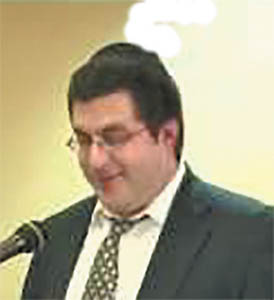
Every year I write a tax column, for tax purposes. I know that we all have to pay taxes, because that’s how we all chip in for things, like a big cake when it’s the president’s birthday, and so on.
But some taxes are ridiculous. For example, in New York, there’s a tax on bagels, but only if you have the store cut them open for you and turn them into a sandwich. The bagels stores are all apologetic about this, but they won’t let you come back there and make your own sandwich, despite your extensive experience.
Also, I should probably ask: How many honest mistakes are we allowed on our taxes? I’m asking for a friend. Like the government doesn’t make mistakes, right? What’s the worst thing the IRS can do to you?
Well, they can kill you. In January, Siegfried Meinstein, a 94-year-old man in Ohio, was told by the IRS that they can’t process his tax return because he’s dead. This came as a huge surprise to him. His memory is going, but I’m pretty sure he’d remember if he died. It’s not the kind of thing you forget.
Meinstein told reporters, “This hasn’t really been a problem in my daily life. Everybody accepts my money.”
What do we learn from this story? I learn that being dead isn’t really a problem in one’s daily life. That takes away some of the fear. So now my #1 fear is taxes.
So now Siegfried has to prove that he’s alive, because for some reason the burden of proof is on him here. And the IRS is making him jump through hoops, which is not great for his hip.
Originally, Siegfried thought the problem originated with the Social Security Administration, which mistakenly decides about 1,000 people are dead each year. (This is a first-world problem.) So he had to go down to the social security office to prove that he was alive. They don’t let you do that over the phone. But the social security office said that according to their records, he was still alive, B”H. So they sent him to the IRS office. The IRS said they’d get on it, but a few months later they sent him a letter saying, “We’re sorry, but you’re still dead.” They followed this up with two more letters, in case he was too dead to get the first one. This is where our taxes go.
In the meantime, the IRS is still cashing his checks, because he’s one of these people who get their taxes done early. And now they’re sending him letters asking why he has a credit balance of $14,000 in prepaid taxes when they have no tax returns from him since 2013.
My point is that maybe a good way to get out of doing your taxes is to convince the IRS that you’re dead. I don’t know how one goes about doing that. But is there any other way to get out of it?
Maybe you can try living in a country with no income tax. Are there any? It turns out there are. There’s:
- The United Arab Emirates. So good luck with that. In fact, a lot of Arab countries have no income tax, which is a shame, because of all the dependents they can claim. Though if they wanted to set it up, they’d have to make separate forms for married filing jointly, married filing as a collective and so on.
- Bermuda. There’s no income tax there, but because it’s a small island about 640 miles from the Carolinas, milk is like $15 per gallon. And their only real export, that we know of, is shorts.
There’s really nowhere to go. Even if you’re in jail, you have to file tax returns. Except that—surprise! It turns out that prisoners cheat on their taxes. In 2012, for example, nearly 138,000 inmates filed for a total of $1 billion in fraudulent refunds. And why not? What’s the worst we can do to them?
It turns out that the IRS caught most of them, but before they did, they paid out $70 million to fake claims. Though, admittedly, that was a nice drop from the $256 million they paid out in 2011.
So um… You might ask why they’re letting the prisoners file taxes in the first place. Especially since some of these guys were in prison for filing fake tax returns in the first place. You’d also think the IRS would realize they’re mailing money to a prison. And you’re the one getting audited? They’re not going to send a little guy with a briefcase to the prison?
Also, you can’t even go into outer space without the IRS finding you. Even astronauts don’t get special treatment. They have to bring up an accountant. And it’s even more complicated for astronauts, because they have questions like: Can they count the commute? What percentage of their residence is used for business? How does the IRS feel about claiming every square inch of one’s residence due to, quote, “scientific experiments”? Can they claim exemption for money earned outside the United States?
The answer to that last one is “no,” because government workers don’t qualify for that. And if you think it’s hard to find tiny pieces of paper when you’re surrounded by stacks of them, imagine doing your taxes when they’re all floating around you.
“Ugh, I need to step outside for some air.”
“There’s no air outside.”
So you can’t get away from taxes. But the good news is that if the IRS sees that you have no idea what you’re doing, they’ll put you in a nice facility where you can live, rent free, and everyone else’s taxes will chip in toward feeding you. So that’s nice. You can even do your taxes there, apparently.
By Mordechai Schmutter










